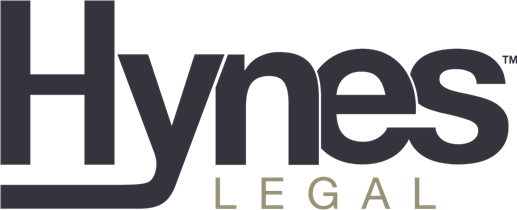Body Corporate FAQs
Body corporate spending limits
The Body Corporate and Community Management Act 1997 (BCCM Act) sets out a number of spending limits. Some of these intersect with others. Some need to go to general meeting and some depend on the number of lots in the scheme.
The rules relating to them are scattered across the relevant Regulation Modules. This newsletter sets them out in one place.
The major categories of spending include the:
- committee spending limit (is a committee or general meeting required?)
- major spending limit (are two quotes needed?)
- common property improvement limit (what type of resolution is required depending on who is making the improvement?)
The committee spending limit
The default position for committee spending is $200 for each lot in the scheme. So if the scheme has 10 lots, the committee can spend up to $2,000 without approval at general meeting.
From our end the jury is not really out about whether that includes GST or not. The better argument is that it does, because if you are invoiced $2,200, you have still spent it, even though you may be entitled to an input tax credit of 10% ($200) meaning the net spend was $2,000.
That default position applies across the Standard, Accommodation and Small Scheme Regulation Modules. There is no limit in the Commercial Regulation Module and no committee for the Two-Lot Module.
The committee spending limit can be changed (for those that have one) by the body corporate at general meeting through an ordinary resolution. That resolution can relate to spending generally or to a specific project. There is no upper or lower limit. If your 10 lot scheme wanted to allow the committee to spend $1 million – it could. It could also bring it down to a nominal amount to restrict a recalcitrant committee from spending anything (but beware the general meeting costs then for approving any spending).
The joys of self governance.
The committee can exceed their spending limit in very limited circumstances, but it suffices to say those exceptions are rare and will not apply to anything that is not really an emergency. An emergency is something like urgent works after the 2011 floods (where we acted for the body corporate to allow the committee to incur up to $1 million in expenses). An emergency is not where the issue has been left sit for 3 years and is suddenly urgent because it hasn’t been properly dealt with previously.
Any spending above the default (or otherwise general meeting approved) limit needs to go to general meeting for approval.
Major spending (also known as the two quote rule)
The limit for major spending is also found in the Regulation Module. This sets out whether two quotes are needed before the body corporate can spend its funds and this limit imposes conditions about needing two quotes irrespective of whether the spending is considered at committee or general meeting level.
The default position is that the limit for major spending is the lesser of:
(a) $1,100 for each lot in the scheme; or
(b) $10,000.
So if the scheme has 20 lots, the body corporate can spend up to $10,000 before needing a second quote.
If a scheme had 8 lots it would need two quotes before it spent $8,800.
Again, this can be changed by the body corporate at general meeting by an ordinary resolution.
The exception to needing two quotes for major spending is if there are exceptional reasons and it is not practicable for two quotes to be obtained. The example in the legislation is that the body corporate is looking for a type of good with particular characteristics and there is only one supplier.
The convergence of the spending limits
Take a body corporate with 100 lots. The default committee spending limit would be $20,000. The default major spending limit remains at $10,000. So while a committee could spend $15,000, it would need two quotes to do so.
If the spending was $25,000 it would need approval at general meeting with two quotes.
Improvements to common property by the body corporate
Then you need to deal with where the body corporate proposes to improve common property (as opposed to simply maintain it). These spending limits are subject to the same committee and major spending limits discussed above.
The thresholds here are:
The basic improvement limit
Anything under $300 for each lot in the scheme can be approved by the committee or by general meeting.
The ordinary resolution improvement range
Improvements that cost between $300 and $2,000 for each lot in the scheme require general meeting approval by ordinary resolution. The body corporate can only pass one of these resolutions in each financial year.
Special resolution
Improvements that cost more than $2,000 for each lot in the scheme need a special resolution.
Improvements to common property by lot owners
If an owner wants to improve part of the common property, the body corporate can authorise that by ordinary resolution.
However the committee can approve it if the improvement:
- is a minor improvement;
- does not detract from the appearance of a lot or the common property; and
- there will be no breach of owner’s duties as an occupier.
The owner then assumes the obligation to maintain the improvement in good condition.
The key thing here is what constitutes a “minor improvement”. It is not what the committee or body corporate thinks is “minor”. It is minor in the sense that it has an installed value of $3,000 or less.
That’s enough for today.
Don’t think you can put together five separate quotes for individual components of work to duck and weave on the spending rules. Spending on a ‘project’ means all costs needs to be lumped together for spending calculation purposes.
And we will also leave the discussion around the distinction between maintenance and an improvement for another day.
Let us know if you need help making sense of these rules.


